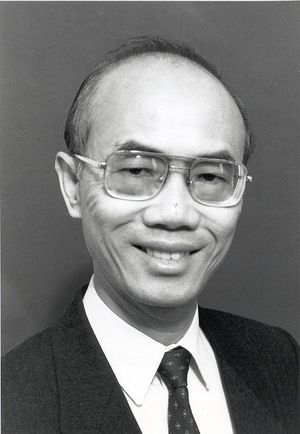Tak H. Ning
Biography
Tak H. Ning attended the University of Illinois at Urbana-Champaign, where he received his PhD in Physics in 1971. He began his career as a research assistant professor at the University of Illinois, where his research focused on the transport of electrons in MOS surface inversion layers and the theory of impurity centers in silicon. While at Illinois, he also worked to develop a theory related to the oxide-charge scattering of electrons in MOS inversion layers.
In 1973, Dr. Ning joined the Thomas J. Watson Research Center at IBM. In the early years of his career at IBM, he and his colleagues worked together to make major contributions to how we understand hot-electron effects and electron and hole trapping in MOSFETs. This included their discovery and demonstration of substrate-hot-electron effects. Dr. Ning and his colleagues modeled the shallow-emitter effect and its dependence on emitter-contact material. They were also responsible for multiple inventions, including the polysilicon-emitter self-aligned bipolar transistor and the substrate-plate trench-capacitor DRAM cell.
Dr. Ning became the senior manager of the silicon device technology in 1982. Under his leadership, his team contributed to the development of submicron bipolar and CMOS technologies and explored SOI and EEPROM devices. Dr. Ning remained in this position until 1991, the same year he won the IEEE Jack A. Morton Award and became an IBM Fellow.
Since the early 1990s, much of Dr. Ning's work has been focused on CMOS. In addition to his research, Dr. Ning also represents IBM at the Executive Advisory Board of the Semiconductor Research Corporation. Dr. Ning has served as associate editor of the IEEE Transactions on Electron Devices, is a member of the IEEE Electron Device Society's Administrative Committee, and has served on several conference and IEEE award committees.
In addition to receiving the Morton Award, Dr. Ning has also received the 2007 Gordon E. Moore Medal from the Electrochemical Society (2007), the IEEE J.J. Ebers Award (1989), the Pan Wen-Yuan Foundation Outstanding Research Award (1998), and the IEEE Custom Integrated Circuits Conference Best Paper Award (2000). Dr. Ning has authored or co-authored over 120 technical papers and holds 38 U.S. patents.
